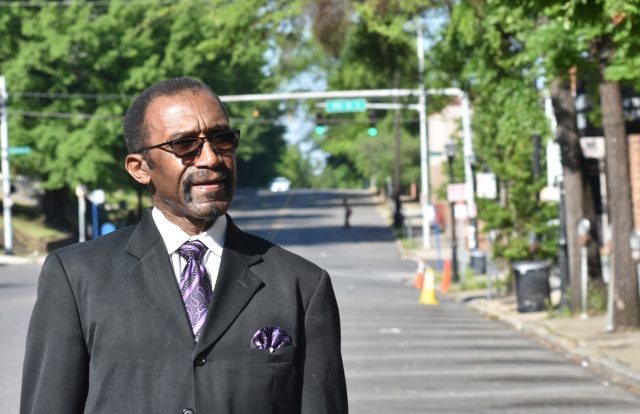
By Solomon Crenshaw Jr.
For The Birmingham Times
No Menthol Sunday – the national campaign that encourages church-goers to stop or not start using tobacco products – brings an expanded message to congregations across Alabama and the country this Sunday, May 17, 2020.
Beyond the gospel, those who attend church – even in virtual services – can get a bonus message that goes beyond their soul salvation.
New Pilgrim Baptist Church in Birmingham’s South Titusville Neighborhood has been a longtime participant in the annual campaign. The Rev. James Brooks, the church’s pastor, says it is part and parcel of the church’s concern for the whole person, not just the spiritual condition but also the physical and socioeconomic well-being, health and wholeness.
“It’s for giving out the teaching of Jesus in John 10:10 that says, ‘He’s come that we might have life and have it more abundantly,’” Brooks said. “Not just spiritual life, not just existing even but having a well-rounded life, a healthy life. That’s come about out of our concern for the wellness of the individual … his soul as well as his body.”
No Menthol Sunday is a national observance day led by the National African American Tobacco Prevention Network (NAATPN). Its aim is to engage faith leaders, churches and their communities in a discussion about how to improve health outcomes for African Americans who use tobacco.
While the campaign included some in-person visits to church services, the event this year required more legwork in the distribution of digital materials from which church leaders can speak and some that can be relayed to parishioners.
The message has been largely digital this year with travel restrictions brought on by the COVID-19 pandemic.
“For the sake of the audience, what we’re trying to get them to understand is that these products are harmful to their health,” said Claudia Hardy, Program Director at O’Neal Comprehensive Cancer Center in UAB’s Office of Community Outreach and Engagement. “We use the mechanism of the church, particularly for African Americans, particularly now, (because) we now have all these things like vaping, smokeless or smoking devices that are on the forefront. Many of those devices are laced with menthol and they in turn cause young people now to pick up these habits.”
Tobacco use is among the top contributors to the death of African Americans, according to health officials at the O’Neal Center and NAATPN.
Menthol is the chemical substance that makes tobacco addictive, Hardy
said.
“Menthol is the flavoring,” she said. “What we’re trying to get (people) to understand is that these products are harmful to their health. We use the mechanism of the church … particularly for African Americans. We now have all these things like vaping and other types of smokeless or smoking devices that are on the forefront. Many of those devices are laced with menthol.”
Those devices cause young people to pick up habits that are detrimental to their health, Hardy said.
“Tobacco is a lifestyle and we’re trying to reduce our risk of cancer (through) tobacco and menthol related products,” she said. “(Someone) can make a decision not to use those products and hence, reduce their risk of cancer.”
In past years, UAB’s Office of Community Outreach & Engagement distributed flyers, leaflets, bookmarks and church fans that brandished the message of No Menthol Sunday. That message has been conveyed largely digital this year with travel limits brought on by coronavirus.
The packets distributed to churches include a draft of a resolution a church can adopt to restrict smoking on church grounds on No Menthol Sunday. Pastor Brooks said New Pilgrim has long had a smoking ban in the church and near exits.
The Rev. R.L. McAdory is pastor of Faith Missionary Baptist Church in Bessemer’s Pipe Shop community. Last year was his church’s first to take part in No Menthol Sunday.
“That Sunday I talked about honoring the temple God has given us,” the pastor recalled, citing 1 Corinthians 6:15-20 and his subject “Living By Giving Up – Things To Support Our Christian Responsibilities.”
“I talked about the dedication of the temple, which is our body,” McAdory said. “I talked about dealing with temptation. You have to be willing to honor the temple by stepping away from temptation.”
McAdory denounced the notion that someone can pray over anything he eats, drinks or uses and be protected from any ill effects, like sickness.
“You think just because we pray and ask God about it, that we’re not going to have to stand up for what’s going to happen to us as a result of eating or drinking or smoking, whatever we do?” the pastor said. “It’s wrong.”




